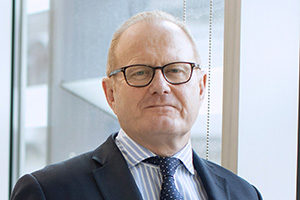
For many companies, cash flow issues are naturally at the forefront of management agendas. One of the causalities from this focus can be intangibles such as outstanding legal cases. This need not be the case however, with innovations such as litigation funding now available to turn legal costs liabilities into valuable free cash flow.
Legal risks such as the costs of litigation were not legally transferrable in England and Wales until barely a decade ago. The traditional legal concepts of champerty and maintenance barred a third party from paying for legal cases. But in 2013, president of the UK Supreme Court, Lord Neuberger, modified rules in the name of facilitating access to justice, and the litigation funding industry was created. Today, such funding is increasingly in demand from managers and their lawyers, as well as institutional investors seeking uncorrelated returns.
On the ‘demand side’, companies with legitimate commercial claims can increasingly access third-party litigation funding which can be thought of as a type of hedge against the uncertainty of a legal outcome. Such arrangements differ from traditional financial hedge instruments in that rather than requiring premiums to be paid in advance of risk being taken on by the other party, in this case the litigation funder, no upfront payment is required. Instead, payment is only made when a case is won or settled in your favour, as costs are taken from the outcome of the claim. Should a case be lost, the funder takes the loss without recourse, and if it has been used, after the event (ATE) insurance picks up the other side’s costs. There is no cost impact to the party bringing the claim.
Such a risk transfer mechanism can be appealing to managers in a variety of situations, especially in times of uncertainty. Many legal disputes are unexpected. So those without budgets set aside for litigation find third-party funding attractive. So too can those businesses currently without the significant free cash flow required for the funding of often hefty legal fees. But funding is also increasingly attractive to cash-rich organisations. Such companies may wish to manage their working capital amid uncertainty by transferring the risk of litigation, turning a potential sizeable liability into a future asset.
Established litigation funders have effective case management processes in place. Often combining analytical and legal skill, they assess cases on a variety of bases, including not only the legal merits, but also the financial dynamics of the claim, the defendant’s ability to pay and the lawyer’s calibre. Such processes act as a filter, often leading to only 2 to 3 percent of cases offered to funders being taken on. This ensures the funders a high success rate, often around 70 percent. The result is strong returns on capital that have not gone unnoticed on the ‘supply-side’ among institutional investors.
In today’s low-yield, highly volatile markets, many sophisticated investors are seeking innovative asset classes in order to diversify their portfolios. Money has flowed in increasing quantum into the litigation funding industry over the past several years, as savvy pension and credit funds seek to access this emerging asset class. Offers of additional capital are a regular event and these are already increasing in the continuing macroeconomic uncertainty, in part accentuated by the worrying advent of the coronavirus.
The challenge for funders is to manage risk in their portfolios. It is all too easy for ambitious individuals with an understanding of litigation to seek to pile into the industry. From experience, it takes time to build effective risk management processes and teams, and to identify optimal segments of the market. The key is to select case types, jurisdictions and law firms that offer rational, predictable behaviours and outcomes. In much the same way as a commercial insurer, data on past cases and legal track records need to be modelled to understand potential risks and returns.
With understandable clamour for uncorrelated assets and hype around the industry growing, both investors seeking to place capital in litigation funders, and managers looking for funding for their cases, should carefully consider the appropriate funder to work with. Those participating in the self-regulatory body, the Association of Litigation Funders (ALF), undertake to act transparently, fairly and to ensure appropriate returns for claimants. ALF membership demonstrates a commitment to good governance and fair businesses practices akin to established insurers. Given the relatively low barriers to entry in the industry, it is feasible that poorly managed and undercapitalised litigation funders may be set up. ALF exists to assure both investors and claimants that its members are trustworthy counterparties.
In a little under a decade, litigation funding in England and Wales has gone from a novel phenomenon to a must-have for sophisticated litigation lawyers and their clients. Our recent survey with The Lawyer shows that nearly 70 percent of solicitors expect the industry to grow apace in 2020. This trend on the demand side will only cement appetite on the supply-side among investors. This offers institutions strong returns, uncorrelated to traditional asset classes, which are essential in these volatile times. Investors should choose their investments carefully, looking at the quality of process and leadership of potential investees.
With the ongoing pandemic affecting every walk of life, managers need to look carefully at their businesses. Preserving cash flow is critical to ensuring survival. But savvy managers will not simply take a knife to every cost, or merely delay every investment, having an eye on the future. Where tools such as litigation funding are available, managers can reduce risk without writing off potential upside. In uncertain times, converting legal liabilities into potential assets is undoubtedly a strategy many should consider.
…
Interested in finding out more about litigation funding and how you can apply? Contact Louis Young or a member of our team of litigation funding experts today.